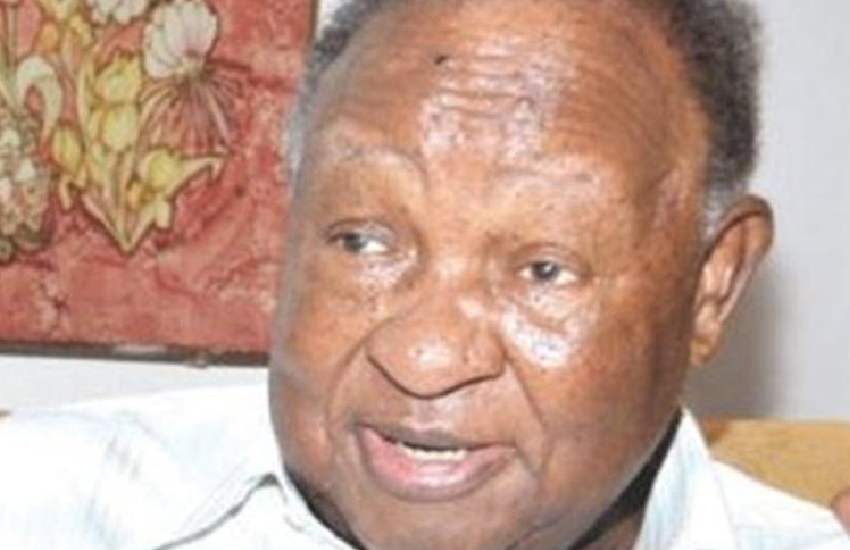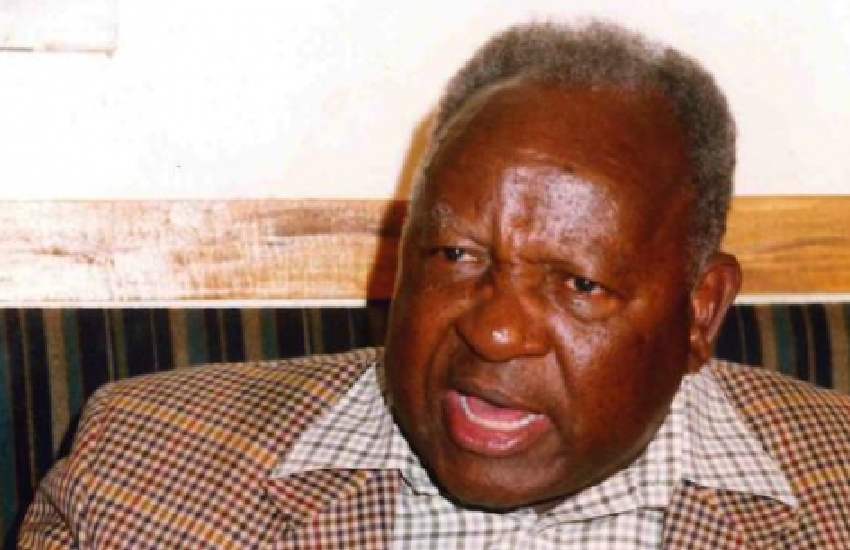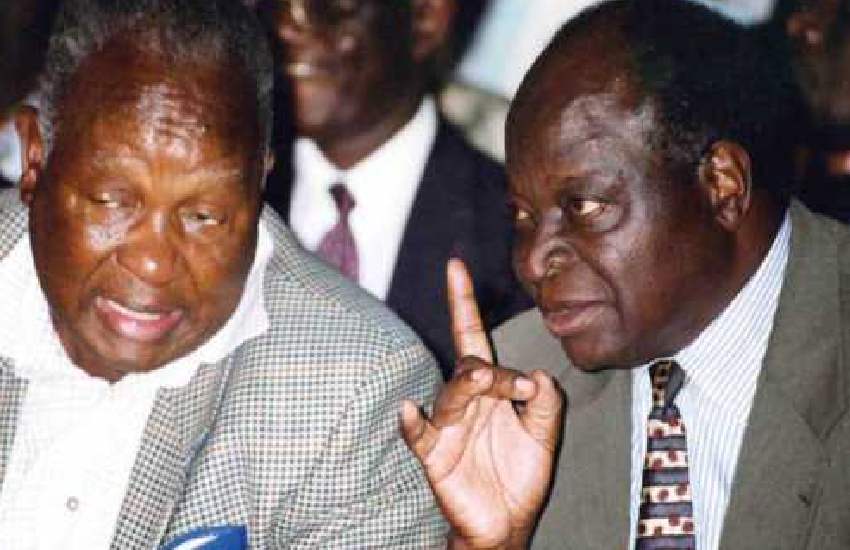
How your life pans out is largely influenced by the year and place of birth, as the life of the late one-time billionaire politician Kenneth Matiba illustrates.
American author Malcolm Gladwell notes in Outliers: The Story of Success, that the year and place of birth matters as they fall into different political periods with far-reaching implications on opportunities that can irrevocably change one’s life. Matiba, for instance, was born in Murang’a in Central Kenya in 1932.
He thus was 20 when Governor Evelyne Baring declared the State of Emergency in October 1952. The Emergency saw many villages burnt down and people - children and women included - forced into the over 800 emergency villages comprising 240,000 mud-walled huts that dotted Central Kenya.
“With a majority of men in the forest or detention, the full-scale burning of villages broke families, many died in the translocation to open fields where the ‘emergency villages,’ like Kiamariga in Nyeri, were established,” writes American historian Caroline Elkins in Britain’s Gulag: The Brutal End of Empire in Kenya.
Read Also: Kenneth Matiba: How the true millionaire went bankrupt
Matiba’s family life and education were not disrupted by the State of Emergency as Murang’a was not a hotbed of Mau Mau activities, unlike Nyeri. His father, Stanley Njindo, was an Alliance High School educated teacher. Alliance was a Presbyterian Mission School in Kikuyu. His father was thus a ‘Mission Boy’ who later worked for the colonial government as a ‘System Boy.’

Like his father, Matiba joined Alliance High School. The colonial government did not bother church-based institutions. Matiba thus blissfully glided through the Emergency period as a boarding student escaping what his agemates in Nyeri were going through in the Emergency Villages; digging trenches, tilling the land, milking cows where “resistance could lead to summary execution or further torture before reconsidering a life or death judgment.”
Matiba then proceeded to Makerere University in Uganda for a diploma in education, returning to Kenya as a teacher after the State of Emergency ended in 1959. Did you know that people who became wealthy and successful like Matiba (although his secured fortunes later came to grief) are also aided by what Gladwell calls “accumulative advantages?” Well, Matiba had the right year and place of birth. His father was a ‘Systems Boy’ and he attended a boys’ boarding mission school, where the legendary Carey Francis was headmaster and Stephen Smith, his schoolmate.
Matiba also married Edith Wanjiru, daughter of Musa Gitau, Jomo Kenyatta’s teacher at Thogoto and later sponsor during his circumcision. Francis influenced the positions his students occupied in government and the civil service at independence, lobbying and putting in a good word for them, as Duncan Ndegwa informs us in his 2009 memoirs, Walking in Kenyatta Struggles: My Story.
Read Also: Endless love - Kenneth Matiba kept off alcohol to marry Edith
With Francis by his side, Matiba was promoted from a teacher at Kangaru School to deputy officer in charge of higher education at the Ministry of Education. Matiba then shortly became Kenya’s youngest PS at 31 in the Ministry of Education, thanks to his father-in-law, Musa Gitau, nudging President Kenyatta in his favour.
Though Matiba’s personal drive, foresight and work ethics were important, the year and place of birth, the school and family connections all conspired in orbiting his meteoric rise through these “accumulative advantages” of which Stephen Smith was part. As a partner, Smith was the cornerstone of the Matiba business empire, sweeping across large-scale barley farming, cut flower exports, education, hospitality and massive investments in blue-chip companies. Matiba’s mixing of business with bruising political battles led to Smith’s departure, and with it, his fortunes went to the sands.

What about Kenyans born in other years and places? Those born in Nyeri in 1942 were unlucky. The State of Emergency disrupted their education and by the time it ended in 1959, they were getting married as illiterate husbands and could not get government jobs after independence, perpetuating inter-generational poverty. Those born in Kisumu in the same year were very far from Mau Mau activities and through proximity of socialisation aspired to join Makerere across the border, giving the Luo Nation a head start in academics.
Read Also: Why Kibaki and Kenneth Matiba could never have a drink together
Those born in 1962 were also unlucky. They turned 20 when naïve Kenya Air Force soldiers attempted to overthrow the government. What followed was 20 years of socio-economic and political darkness in a single-party police state. The luckiest Kenyans are the millennials born in 1991 when Matiba was demanding multiparty democracy. They have the widest access to socio-economic and political opportunities unavailable to any other generation before and after independence!
 The Standard Group Plc is a multi-media organization with investments in media
platforms spanning newspaper print
operations, television, radio broadcasting, digital and online services. The
Standard Group is recognized as a
leading multi-media house in Kenya with a key influence in matters of national and
international interest.
The Standard Group Plc is a multi-media organization with investments in media
platforms spanning newspaper print
operations, television, radio broadcasting, digital and online services. The
Standard Group is recognized as a
leading multi-media house in Kenya with a key influence in matters of national and
international interest.
